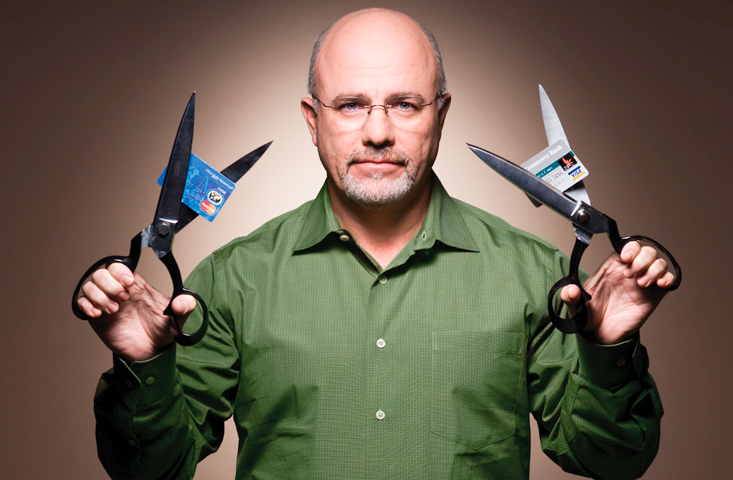The word “emergency” doesn’t have a polar antonym, but “tranquility” and “calm” were the best candidates we could find.
Go pick a personal finance website at random. You can start with any of the jetsam on this list. Sooner or later, the purveyor of the site you selected will mention how important it is to have an “emergency fund.” You know, for emergencies. We’ve already explained how that’s among the laziest, least original, most derivative ways of telling people what they should be doing with their money. You don’t need an emergency fund for a million reasons, the most prominent of which are:
- By definition, emergencies happen infrequently enough that if you earmark funds for them, those funds aren’t helping you and growing for you like they could be.
- Almost any emergency you can think of, you can insure against.
Need cash in a hurry? Like, within the hour? That’s what your checking and savings accounts are for. More importantly, why do you need that much that fast? Now, whatever you answered for the previous question, answer this more fundamental question: “Do I need that much money that badly because I did something stupid months or years ago, either once or chronically, and now it’s catching up to me?” Did your engine seize and require a $2500 rebuild because you were too lazy to visit Manny, Moe & Jack and pay $20 for an oil change? Do you need to spend 50 large drying out at Betty Ford because of your continued failure to ever buy a $3 Diet Coke? True emergencies that can’t be insured are unbelievably rare, and focusing on their unlikely occurrence to the exclusion of more pressing and important matters is Reason #1 why most personal finance advice puts the “awful” in godawful.
Pressing and important? What’s more pressing and important than an emergency?
Everyday life, Jim. Hence the idea of a tranquility fund. Modifying the definition of an emergency fund given at our other creative outlet, Investopedia, a tranquility fund is an account created for the purpose of setting aside money to be used during the unremarkable times that constitute the bulk of one’s life.
If that sounds vague, use your imagination. Personal finance, at its root, is as painfully simple a pursuit as there is. Collect $x. Spend $y. Then determine what you’re going to do with $x–y, and you can start by ensuring that that quantity is as large as possible. That requires nothing more than making x large and y small, but if we had a nickel for every personal finance site that fixated on nothing but minimizing y, we’d have more x than we could spend.
Your tranquility fund is $x–y. In other words, everything past necessary expenses. The money has to go somewhere. One of the starkest realizations any university economics student makes in intermediate study is yet another obvious one that’s been hiding in plain sight: every dollar has to be either spent or saved. And “saved” is just a synonym for “spending deferred.” You can have a little now, or a lot later. Delayed gratification is the carrot that makes the Charlie Mungers of the world. The evil cousin of delayed gratification, immediate gratification, has its devotees too. People like Len Bias and Vodka Samm. There are thousands of examples in the former category, billions in the latter. Faceless gamblers, both the casino/dog track kind and the “Take this side street, where no cops will breathalyze us” kind.
Incessantly pressing on the “necessity” (really a luxury) of an emergency fund would be like never shutting up about how important it is to have a smoke alarm in your house. You should test the smoke alarm every month, even if that means schlepping a ladder inside and inevitably banging it against a doorway and creating some cosmetic damage. Oh, and be sure to replace the batteries regularly. Again, that’ll require a ladder. You might want to invest in a battery tester, too. Don’t forget to have an exit plan and memorize which is the safest way to leave your house in the event of a fire. Also, be sure the smoke alarm has the label of a recognized testing laboratory. A smoke alarm with a strobe light is also handy if you have deaf or hard-of-hearing people in the house. Make sure you read the owner’s manual that came with the alarm, and store it in a safe place, but you should still get a professional to install the alarm. Also, remember to temporarily suspend the alarm’s sensitivity if it’s susceptible to cooking fumes. You’ll want to get an ionization alarm for flaming fires, but a photoelectric one for smoldering fires. For the best protection, get both and SWEET CHRIST ENOUGH ALREADY. THANKS FOR YOUR CONCERN BUT THE EXTREME IMPROBABILITY OF MY HOUSE CATCHING FIRE ISN’T WORTH THE AGONY OF SPENDING MY VALUABLE TIME HAVING TO LISTEN TO THIS ENDLESS SPIEL ABOUT SMOKE ALARMS. JUST INSTALL IT AND LET’S GO.
How is that any different than obsessing over emergencies and the funds that are supposed to fund them? There’s what, a 10,000-to-1 chance you’ll actually need a smoke alarm, or an emergency fund? Then you should spend .01% of your time thinking about it. Or one minute a week, and even that sounds like too much. Spend the remaining 99.99% of your time doing something valuable – creating and building wealth, rather than hoping your car gets hit by a meteor (with no “catastrophic astronomical event” coverage in your policy), just so you can withdraw the entire $493.67 from your sporadically stocked emergency fund and be able to tell people like us, “See? I told you so!”



